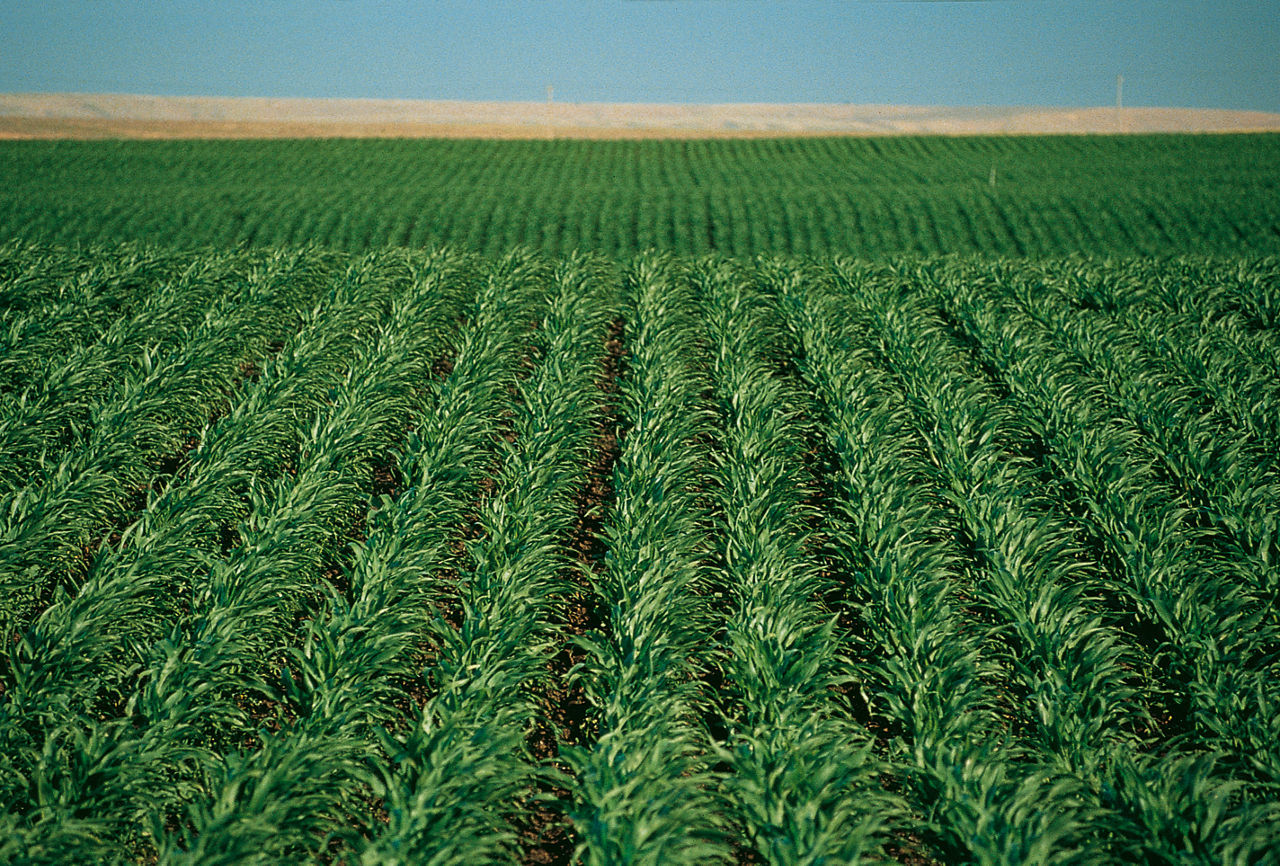The reason was science; the corn had been genetically engineered to be shorter. That meant it needed less water, and resulted in less environmental strain, plus shorter stalks meant less risk from wind.
Over the protestations of environmentalists, USDA has already approved this transgenic corn, the final round of field trials happened this growing season on 12,000 hectares. Yet environmentalists should not protest at all. Corn is a grass, it was only ever genetically engineered to make cows grow better - it was poisonous to humans in its natural form. Add water to a poison grass and process it and you create food. Only later did humans then engineer it for direct human consumption also and then want to make it bigger and bigger to use less space. Now science is reversing that last part, by making it smaller but producing the same amount of food.

Image: Bayer. No, they don't give us any money, though they should, so keep quiet, organic industry toadies.
It is a win for the public, for science, and for farmers. The only losers are activist groups who hate science - and other horror movie scriptwriters. You can't get lost in short corn fields, after all.


Comments